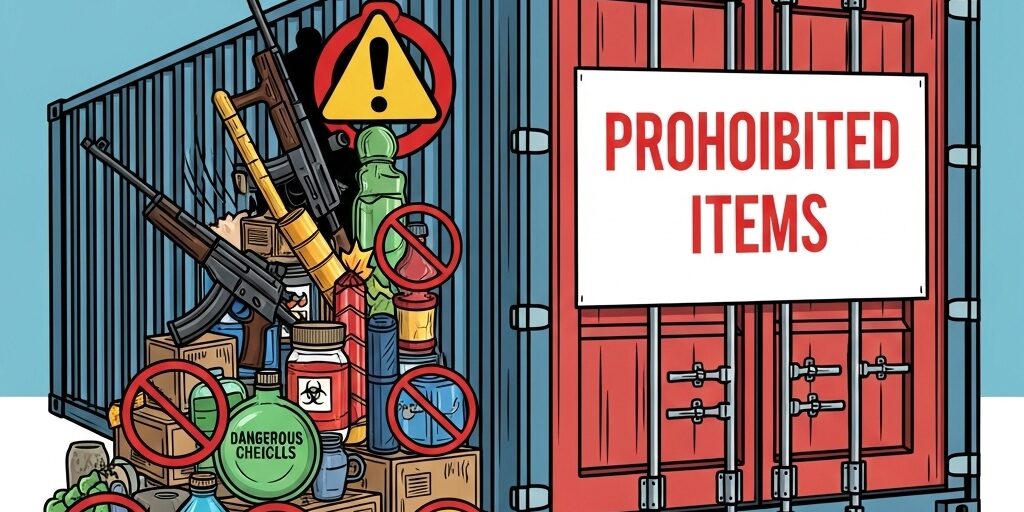Understanding Shipping Prohibited Items
In an increasingly interconnected world, shipping goods across borders has become the norm. But not everything can go in a box and onto a truck, plane, or ship. Every country and courier has a list of prohibited items, things you are legally barred from sending by post or courier. Understanding these restrictions isn’t just a matter of avoiding headaches, it’s a matter of legal and logistical safety.
Why Are Certain Items Prohibited for shipping?
Prohibited items are banned from shipping for a range of reasons:
- Safety risks (e.g., explosives, flammable liquids)
- Legal restrictions (e.g., counterfeit items, drugs)
- Environmental concerns (e.g., certain chemicals or waste)
- Security issues (e.g., firearms, radioactive material)
These rules protect postal workers, transport crews, customs authorities, and even end consumers.
Common Categories of Prohibited Shipping Items
While each carrier and country has specific policies, these are commonly restricted:
- Weapons & Ammunition: Firearms, replica weapons, and even certain types of knives.
- Hazardous Materials: Explosives, gasoline, aerosols, and lithium batteries (in bulk).
- Illegal Substances: Narcotics, unlicensed medications, cannabis products (even in legal-use countries).
- Perishables: Unrefrigerated meats, seafood, or produce—especially when shipping internationally.
- Living Organisms: Insects, plants, or animals, unless shipped under very specific and regulated conditions.
- Counterfeit Goods: Branded items that infringe on trademarks or copyrights.
- Valuable Goods: Uninsured precious metals or stones may be restricted, especially across borders.
Global Variations and Cultural Sensitivities
- A product you can ship domestically may be banned abroad. For example:
Alcohol is legal in most countries but heavily regulated or even banned in some. - Pornographic material is acceptable in one region but considered illegal in others.
- Some cultural items, such as religious texts or symbols, may be sensitive exports depending on destination.
Tips for Compliance
- Check Carrier Guidelines: Each courier—like DHL, FedEx, or Royal Mail—publishes detailed restrictions.
- Consult Customs Regulations: Look up the importing country’s customs website for official policy.
- When in Doubt, Ask: Contact the shipping company’s customer support.
- Label Accurately: Mislabeling an item can lead to fines, confiscation, or legal consequences.
Consequences of Shipping Prohibited Items
If you ship a prohibited item, you may face:
- Confiscation or destruction of goods
- Fines or penalties
- Legal action
- Damage to your business reputation
Staying compliant isn’t just about avoiding trouble, it’s about ensuring your operations are professional, ethical, and respectful of global rules and responsibilities.






